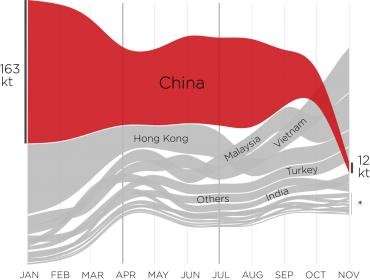UP
T20I Debutant
- Joined
- Sep 25, 2007
- Runs
- 8,082
I visit restaurants everyday due to work reasons and what wobbles my head is the mere rise of single use plastic. You will be surprised the amount of single use plastic has been in the grocery and restaurant business for last few years. Single use plastic was not the case 8-10 years ago. It’s use has increased a lot and fast food and on-go or take-out restaurants are a major threat to environment. Restaurants with dine-in are also reverting to plastic to put food in. And after customers are done with their sushi - out goes the plastic container in garbage bin.
Single use plastic is a major threat to environment and to oceans. There’s a report that states there will be a time when there will be more platic than fishes in oceans across the world.
Countries like India/Pakistan where recycling is non-existent and the amount of population those counties have - imagine the amount of plastic waste they create every single day. If plastic is not recycled - it can take hundreds of years to decompose.
The good thing is governments are waking up and have started to tackle this issue. UK is in the process to ban one time use of plastic straws. Its a good start. But we have to be more agressive to tackle this major threat.
McDonald’s has also stated that they will ban straws from their restaurants starting next year in the UK and Ireland.
Single use plastic is a major threat to environment and to oceans. There’s a report that states there will be a time when there will be more platic than fishes in oceans across the world.
Countries like India/Pakistan where recycling is non-existent and the amount of population those counties have - imagine the amount of plastic waste they create every single day. If plastic is not recycled - it can take hundreds of years to decompose.
The good thing is governments are waking up and have started to tackle this issue. UK is in the process to ban one time use of plastic straws. Its a good start. But we have to be more agressive to tackle this major threat.
McDonald’s has also stated that they will ban straws from their restaurants starting next year in the UK and Ireland.






